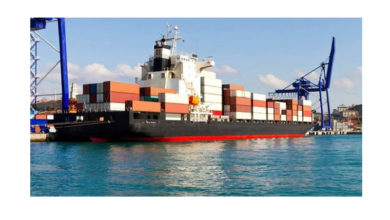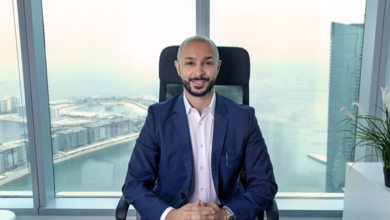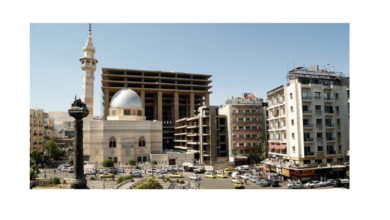World of Paper Unfolds at Dubai World Trade Center
The 5th edition of Paper Arabia once again gave evidence of the vitality and potential of the region’s paper and converting industry. More than 6700 people from across the region visited the show. The healthy visitor turnout proved that paper and tissue industry in the region is on the growth path. The show has increased 11% in size this year and that means exhibitors decided to take bigger stands compared to last year.
 Annual paper consumption is on the rise in the Middle East. The demand for all types of paper is high, however following the global trends- packaging and especially tissue industry is where the real growth is.
Annual paper consumption is on the rise in the Middle East. The demand for all types of paper is high, however following the global trends- packaging and especially tissue industry is where the real growth is.
Satish Khanna, General Manager of Al Fajer Information &Services was happy with the results of the latest edition of Paper Arabia. He said, “Based on exhibitors’ account, many of them reached their target sales at the show in the first day and for the next two days they were able to just relax and enjoy the show. We also had many visitors from KSA, Iran, and Kuwait. Although the show creates many opportunities to do business and reach concrete sales agreement, the real strength of Paper Arabia lies in the opportunity, it provides for people in the paper and printing industries, to interact and meet face to face.”
The next edition of Paper Arabia will be held from 29th September to 1st of October 2013. The exhibition will also include seminars to highlight the importance of the regional paper industry. Panel of experts from Indonesia, India and Abu Dhabi will discuss the state of industry at regional and global levels. Khanna also maintains that Al Fajer’s partnership with ADFORUM, a leading European pulp and paper exhibition organizer, which was announced prior to the exhibition, will pave way for Paper Arabia to become a truly international exhibition. Adforum was established in 1968, and since then it has organized many trade shows in the pulp and paper industry worldwide. Owned by Stockholm International Fairs and the Finnish Fair Corporation, Adforum is associated with many international shows like IPX India, IPX Russia, China Paper/China Forest, PulPaper and SPCI, which is held in Stockholm since 1986. It is considered to be the world’s largest and most important event for the pulp and paper industry. “We are the international associates of the show and through our vast sales directory (mainly for Europe and the Americas) we help to extend the reach of the show. We are mainly trying to promote and sell this exhibition in these countries, and are trying to bring exhibitors, mainly from Europe into this show. Our database is quite extensive and we make sure that Adforum is represented well in all exhibitions worldwide,” commented Marcus Bergström, CEO of Adforum.
Thumbs up from exhibitors
Over all exhibitors were satisfied with the show; however some of them still believe that a biannual Paper Arabia would be more convenient.
Suresh Kilam, Executive Director of Asia Pulp and Paper said that Paper Arabia brings the paper industry under a single roof and thus facilitates printers, publishers and traders to meet and do business.
“APP is one of the largest exporters of paper and paper products into India. So, obviously most of our customers prefer to come here. We have 18 mills worldwide and we have at least one member representing these mills present at the event. Customers can conveniently meet them all at a single location, rather than travelling to these 18 locations. So, we provide what customers prefer at a convenient location, which is Paper Arabia. The event gives us a platform to interact with mills and paper merchants and also serves as a springboard to launch new products.”
 APP had announced that it would be putting into production two new paper machines in the coming year. Suresh Kilam detailed about the new launches. “It’s an Industrial board, folding box machine. The machine is in its final stages and a unique thing about the machine is that it will be the single largest machine in the world, and will be producing about 300 tons of paper per day, which would be 1.5 million tons per year. The machine will start production by this November/December and the commercial production will start in March 2013. In addition to this, we have another machine that has a capacity of 1 million tons, which will start commercial production by May 2013. So by combining these two machines, our production rates will go up by 2.5 million tons in the coming year. The entire team at APP is excited to launch the machines into the market.”
APP had announced that it would be putting into production two new paper machines in the coming year. Suresh Kilam detailed about the new launches. “It’s an Industrial board, folding box machine. The machine is in its final stages and a unique thing about the machine is that it will be the single largest machine in the world, and will be producing about 300 tons of paper per day, which would be 1.5 million tons per year. The machine will start production by this November/December and the commercial production will start in March 2013. In addition to this, we have another machine that has a capacity of 1 million tons, which will start commercial production by May 2013. So by combining these two machines, our production rates will go up by 2.5 million tons in the coming year. The entire team at APP is excited to launch the machines into the market.”
He also added, “APP is a supermarket for papers. There’ no company in the world, which has a wide and diverse portfolio like us. The only product that we don’t make is newsprint.”
Political unrest in the region did not deter the growth of APP, observed Suresh Kilam. “As long as the situations are stable in Iran and Saudi Arabia, the growth charts of APP are going to remain the same. Our biggest consumer of paper and paper boards is Iran and Saudi Arabia, and of course UAE and the Gulf region. Syria and Lebanon are a very small market, and they offer a market for low quality, low priced items.”
Anil Kumar Sharma, Head of Product Entrepreneur Department, APP talked to ME Printer about the digital printing trends. “A new trend in the digital printing industry is that we can now use normal paper on digital machines. An important factor to reckon is that the paper used must be consistent in quality. There should not be any variation in the substance, in the calibre and in the moisture of the paper. If the paper meets these three qualities, then it can be used in the digital printing machine. Earlier, we used modified paper for digital machines, and now the scenario is going to change.”
Suneet Sood, CEO of APP Dubai observed an increased participation from Iranian visitors, “With the rustication on exchange rate lifted, Iran has now become a free market to trade in. That’s why you see lot of Iranian’s at the show. Since the policy change, we have seen a huge jump in our sales figures.”
 In Middle East the major markets of APP are GCC and Iran, says Suneet. “These are the main consumption centres of APP in this area. As long as these regions are stable and growing, we find ourselves good and steady. We have grown 30% in Saudi Arabia, and have recently opened three marketing offices in Riyadh, Jeddah and Dammam.” He added, “Now we are targeting markets like Ethiopia and have started offices in Kenya, Ethiopia, South Africa and Nigeria. These are the four major paper consumption centres in Africa.”
In Middle East the major markets of APP are GCC and Iran, says Suneet. “These are the main consumption centres of APP in this area. As long as these regions are stable and growing, we find ourselves good and steady. We have grown 30% in Saudi Arabia, and have recently opened three marketing offices in Riyadh, Jeddah and Dammam.” He added, “Now we are targeting markets like Ethiopia and have started offices in Kenya, Ethiopia, South Africa and Nigeria. These are the four major paper consumption centres in Africa.”
Talking about the popular paper varieties in the Middle East, Suneet said, “The writing and printing paper is a major grade sold by us. This constitutes about 50% of our sales. In writing/printing we cover the uncoated wood free and the coated wood free. The second segment is packaging. Though the packaging sector is comparatively small for us, the growth is high in this sector. Last year, our packaging sales grew by almost 30%. Growth in stationery is stable, while the writing and printing paper segment has grown by over 10%.”
Explaining their experience in Egypt, he said, “After opening the office in Egypt, we have been getting very good response. Sales have zoomed up, and we want to work on that momentum. By participating in exhibitions in the region we want to display our products to printers and other related industries.”
He added, “Though you find a lot of paper manufacturers in Egypt, most of the paper produced is used within the market itself. When it comes to paper import, it is APP vs. the Europeans. Europeans has a duty advantage, and as Egypt is a partner with the European Union, there’s a duty advantage of almost 7% for domestic companies in that market. This is the area where we are competing. Currently Europeans can sell 7% higher than us. In Egypt, there’s room for everyone to grow.”
Abu Dhabi National Paper Mill (ADNPM) presented their improved tissue range at Paper Arabia this year, as the paper mill has incorporated a series of quality actions to produce high quality tissues. The company has employed a sophisticated Softness tester to ensure softness across products, plus the company claims that the tissue’s high wet strength places it among global leaders. The new web inspection system, which will be operational soon, checks for mechanical defects that delivers higher efficiency and quality. ADNPM claims that it will be the first such system for tissue products in the region and will give customers immense benefits in operating their converting lines. ADNPM, established in the year 2000, annually produces around 65,000 tonnes of tissue paper on two paper machines.
Another company that boasted a large stand was INPAP. Syed Saifulla, Inpap’s business development manager is upbeat about the opportunities that Paper Arabia has provided them. He said, “This is the fifth time that we are participating in Paper Arabia. It has been growing year on year and it has helped us in our growth by providing opportunities to find foothold in markets such as Egypt and Iran.” INPAP is a great facilitator. The company is the agent of well known paper manufacturers from Finland, China, Korea, and India and offers all types of paper grades including uncoated, wood free, art paper, and food boards for the printing and packaging industry. “We don’t stock and sell paper. We offer comprehensive services that include indenting, trading, distribution, logistics and financing. Our strong markets are UAE, KSA, Iran and some African countries.” In 2012 the company decided to diversify and enter into new territories such as digital printing and during drupa exhibition in Germany the company placed orders for a number of digital equipment including an HP Scitex machine.
 Arbros Forest Resources Group supplies wood, pulp, paper and board and distributes it across Europe, North America, Middle East, China, Far East and the Asian sub continent. Established in 1995 in Jebel Ali Free Zone, Dubai the company caters across the GCC and Middle East countries.
Arbros Forest Resources Group supplies wood, pulp, paper and board and distributes it across Europe, North America, Middle East, China, Far East and the Asian sub continent. Established in 1995 in Jebel Ali Free Zone, Dubai the company caters across the GCC and Middle East countries.
Sharing his view about Paper Arabia, Abdullah Rehmani, Managing Director of Arbros Forest Resources group, another faithful exhibitor of Paper Arabia said, “The show was better than we expected. Though there were many uncertainties in the market, the response has been good. We have seen a lot of new customers coming at the show. If Paper Arabia is organized as a biannual event, then it would be more effective. By doing so, we can see the entry of new products into the market.”
He added, “Lot of customers visited us from Saudi Arabia, Bahrain, and Kuwait. We also received suppliers from Germany, from Austria and Canada. It’s good to meet all of them at a single location.”
Talking about the trends in the Paper Market, he said, “As far as international players are concerned, it’s a matter of survival. Prices are rising and people are wondering how to make money in this stringent situation. In this region, the GCC market is still growing and there are signs of improvement in the region, as new investments and developments are happening in the region.” Arbros represents a wide range of papers for the printing and publishing industry like Sappi, Stora Enso, April Fine, Tembec and HoweSound.
Triton a newly formed company that is engaged in the trade and distribution of various grades of paper, paper boards and stationery had a big stand in the center of the exhibition hall. Vishal Sukhani, CEO of Triton International said, “We have been active in the region for the last 4 to 5 years (The Company was formed after the split with Hazel Mercantile Ltd.). Our major markets in Middle East are in Iran, Yemen and some portions of Saudi Arabia.”
Triton currently trades around 6000-7000 tons of paper and related products every month. Vishal explained, “Major portion of the business is done in the African market, and we have offices in Ghana and also Kenya. We offer wood free paper, which includes writing, printing and offset grades. We also trade copier papers, which we source from APP. We stock and sell APP products in Kenya, but as of now we don’t stock and sell in Dubai.”
Chalking out the consumption trends in paper business, Vishal noted, “Newsprint market is certainly going down, but the market for writing and printing paper is still there, as it mainly targets the education sector. From the scenario available now, I think that paper is a dying business. In the next five to seven years, you won’t get to see these many varieties of paper in the market. At Hazel, we did business on chemicals, paper, polymer and rubber. We are planning to diversify our business at Triton and very soon we would be expanding and offering diverse products in order to be successful in the long run.”
MEPCO Gulf established in 1998 and has four offices in UAE, Lebanon, India and Tunisia. The company operates in more than 30 countries. Last year MEPCO sold more than 150,000 tons of paper including fine paper, packaging, mechanical and specialty paper as well as brown grades. Although the company is a regular exhibitor at Paper Arabia, Fadi Baaklini, company’s managing director believes Paper Arabia should be a biannual event. “We are not getting the crowd that we would like to have. We are working at the regional level and we expect to meet important customers at the show. Having said that I will participate in yearly events because Paper Arabia is an important event and we have to participate. Having fewer visitors also has its advantages. We can dedicate enough time to each customer. Baaklini also warns about the decline in demand for writing and printing grade papers. “The dominant trend in paper industry nowadays is packaging and all traders are focusing on packaging in one way or another. During the next 5 years there will be a 6% decline in this market year on year.”
Orient Links, which celebrated its 20th anniversary during the exhibition, was another happy exhibitor. The Company’s main head office is located in Dubai. Orient links’ core business specialization is in uncoated and coated wood free grades. They are the single largest exporters of Indian paper in Writing and printing grades. Sunil Bakht, chairman of the company said, “I think specific buyers and the decision makers are here. The quality of the visitors is very high. We had visitors from entire GCC. Nigeria, Kenya, Iran, Syria and many other countries.” According to Bakht, Paper Arabia is a great facilitator for trade. Bakht also believes that Paper Arabia is becoming more important and a must attend event to participate and to visit. “It has evolved to become one of the most important paper industry events in the region,” said Bakht. Orient links major focus is writing and printing paper, however the company plans to enter the packaging market in a big way. “Packaging is growing very fast and we have to be part of this lucrative market. We are setting up a new division dedicated to packaging. At the moment we are selling more than 200,000 tons of writing and printing grade paper. But in the near future packaging boards will also be part of our offering,” explains Bakht.
Our Take away
Paper consumption in our region is on the rise, however the consumption of writing and printing paper, which until now was considered the bread and butter of paper traders in the region is declining. Now paper suppliers in the region are trying to diversify and enter other growing markets such as packaging and digital printing.
The increasing number of Chinese and Indian suppliers sends out the perfect reminder that the center of gravity within paper industry has shifted eastward. USA and Europe are no longer the dominant forces in paper industry. Companies such as APP are setting the standards in productivity and in diversifying paper products. Environmental issues also are becoming more relevant and more important in our region. Nevertheless Paper Arabia successfully converted Zabeel hall in DWTC into a microcosm of global paper industry where all the elements of a perfect coexistence were present.





